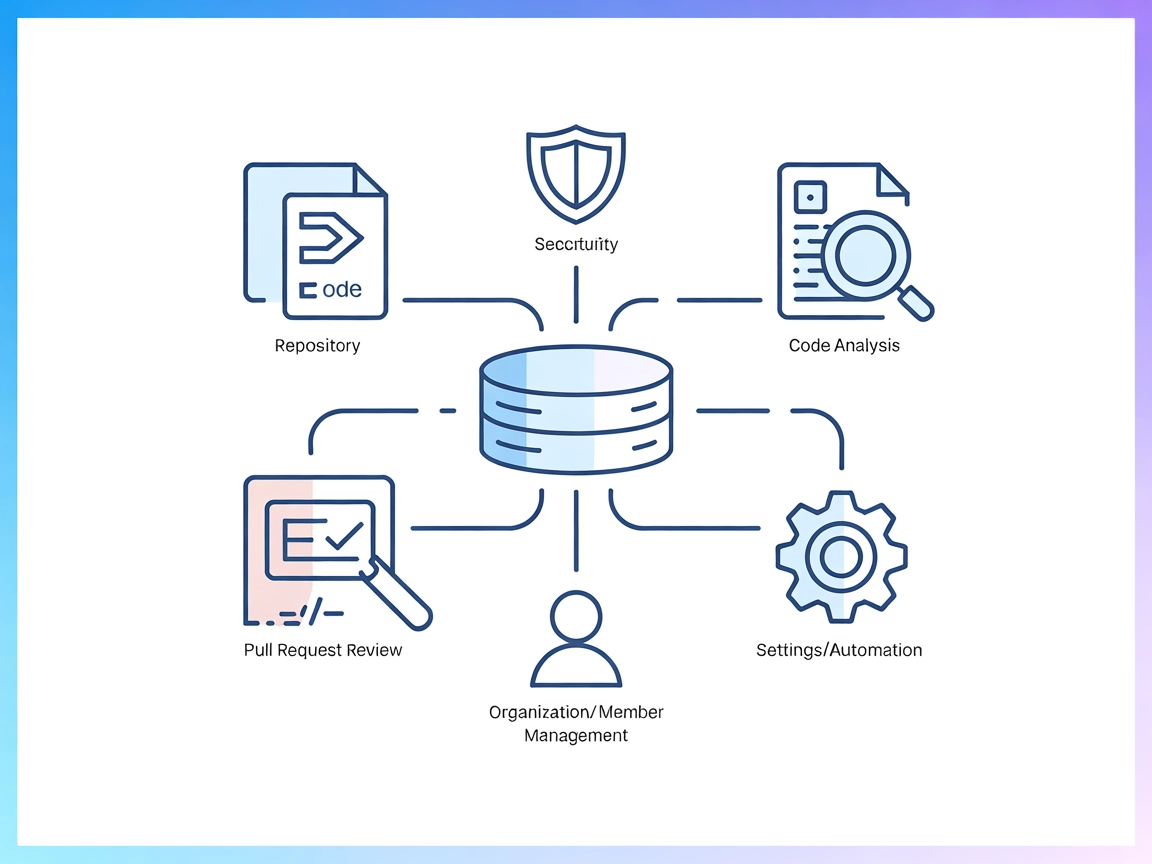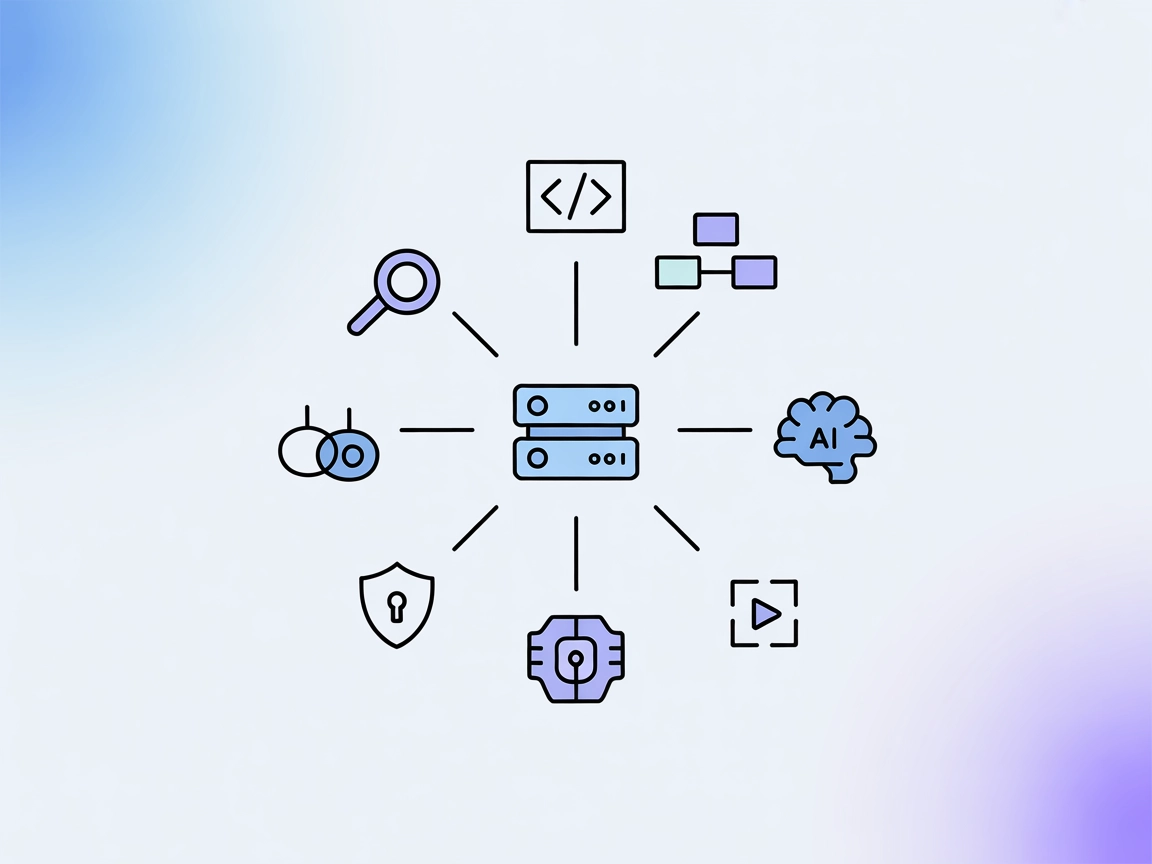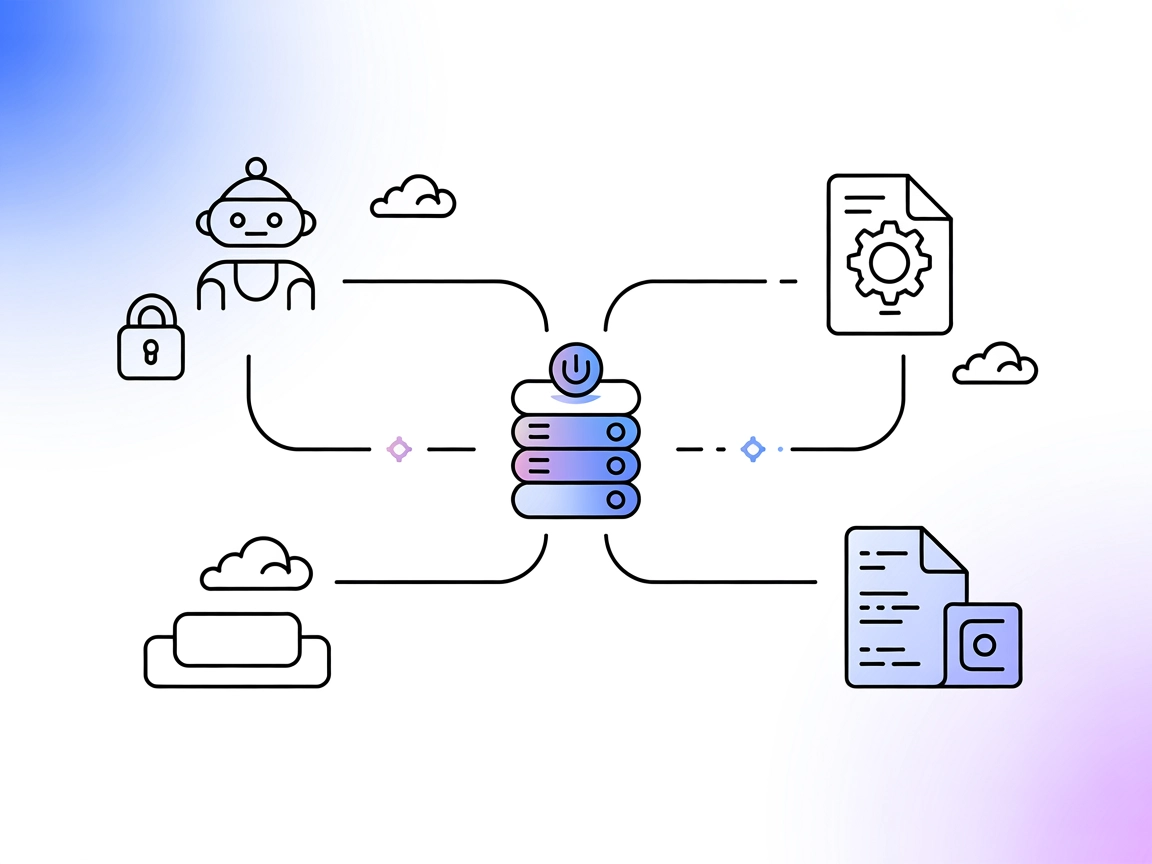
Codacy MCP Server Integration
The Codacy MCP Server bridges AI assistants with the Codacy platform, enabling automated code quality, security analysis, repository management, and developer w...

Integrate CodeLogic’s robust software dependency data into FlowHunt, empowering your AI agents to perform code analysis, visualize dependencies, and automate development workflows.
FlowHunt provides an additional security layer between your internal systems and AI tools, giving you granular control over which tools are accessible from your MCP servers. MCP servers hosted in our infrastructure can be seamlessly integrated with FlowHunt's chatbot as well as popular AI platforms like ChatGPT, Claude, and various AI editors.
The CodeLogic MCP Server is an implementation of the Model Context Protocol (MCP) designed to provide AI programming assistants with access to CodeLogic’s comprehensive software dependency data. By connecting to this server, AI clients can leverage CodeLogic’s insights to enhance tasks such as code analysis, dependency tracing, and program comprehension. This capability enables developers and AI agents to perform advanced queries on codebases, visualize complex dependencies, and automate workflows that require an understanding of software structure. The server’s role is to act as a bridge between AI systems and CodeLogic’s data, thereby streamlining development processes and improving the efficiency of code-related tasks.
No information about prompt templates is provided in the repository.
No explicit information about resources is provided in the repository.
{
"mcpServers": {
"codelogic-mcp": {
"command": "npx",
"args": ["@codelogic/mcp-server@latest"]
}
}
}
{
"mcpServers": {
"codelogic-mcp": {
"command": "npx",
"args": ["@codelogic/mcp-server@latest"]
}
}
}
{
"mcpServers": {
"codelogic-mcp": {
"command": "npx",
"args": ["@codelogic/mcp-server@latest"]
}
}
}
{
"mcpServers": {
"codelogic-mcp": {
"command": "npx",
"args": ["@codelogic/mcp-server@latest"]
}
}
}
Securing API Keys using Environment Variables
To securely store API keys, use environment variables in your configuration. Example:
{
"mcpServers": {
"codelogic-mcp": {
"command": "npx",
"args": ["@codelogic/mcp-server@latest"],
"env": {
"CODELOGIC_API_KEY": "${{ secrets.CODELOGIC_API_KEY }}"
},
"inputs": {
"api_key": "${{ secrets.CODELOGIC_API_KEY }}"
}
}
}
}
Using MCP in FlowHunt
To integrate MCP servers into your FlowHunt workflow, start by adding the MCP component to your flow and connecting it to your AI agent:

Click on the MCP component to open the configuration panel. In the system MCP configuration section, insert your MCP server details using this JSON format:
{
"codelogic-mcp": {
"transport": "streamable_http",
"url": "https://yourmcpserver.example/pathtothemcp/url"
}
}
Once configured, the AI agent is now able to use this MCP as a tool with access to all its functions and capabilities. Remember to change “codelogic-mcp” to whatever the actual name of your MCP server is and replace the URL with your own MCP server URL.
| Section | Availability | Details/Notes |
|---|---|---|
| Overview | ✅ | |
| List of Prompts | ⛔ | No information on prompt templates provided |
| List of Resources | ⛔ | No explicit resource listing found |
| List of Tools | ✅ | “Implements two tools” but names/functions not specified |
| Securing API Keys | ✅ | Example provided using environment variables |
| Sampling Support (less important in evaluation) | ⛔ | Not mentioned |
Based on the above tables, the CodeLogic MCP Server provides a useful bridge to rich dependency data but lacks detailed documentation on available prompts, resources, and the specifics of its tools. While setup and security are well addressed, further information would increase utility. The repository merits a score of 6/10 for its clarity and open license but loses points for missing details that are essential for advanced integration and use.
| Has a LICENSE | ✅ (MPL-2.0) |
|---|---|
| Has at least one tool | ✅ |
| Number of Forks | 6 |
| Number of Stars | 14 |
The CodeLogic MCP Server implements the Model Context Protocol to provide AI agents and developer tools with access to CodeLogic’s software dependency data, enabling advanced code analysis, dependency tracing, and automation.
Use cases include codebase analysis, dependency visualization, automated refactoring support, and impact analysis — all powered by real-time access to comprehensive software dependency data.
Add the MCP component to your FlowHunt flow, open its configuration, and provide your CodeLogic MCP server details using the supported JSON format. Refer to the setup instructions for your specific client environment.
It provides up-to-date dependency information and impact analysis, helping developers and AI assistants identify safe refactoring opportunities and predict the effects of code changes.
Use environment variables to securely store API keys. Example configuration is provided in the setup instructions.
Connect FlowHunt to CodeLogic MCP Server to unlock advanced dependency visualization, impact analysis, and streamlined refactoring with your AI-powered workflows.

The Codacy MCP Server bridges AI assistants with the Codacy platform, enabling automated code quality, security analysis, repository management, and developer w...

The Coda MCP Server provides a standardized way for AI assistants to interact with Coda’s platform, enabling document queries, workflow automation, and unified ...

The ModelContextProtocol (MCP) Server acts as a bridge between AI agents and external data sources, APIs, and services, enabling FlowHunt users to build context...
Cookie Consent
We use cookies to enhance your browsing experience and analyze our traffic. See our privacy policy.